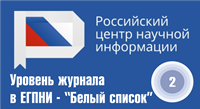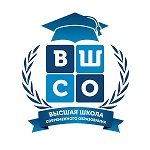РАЗВИТИЕ КОММУНИКАТИВНЫХ НАВЫКОВ СТУДЕНТОВ ИЗ КНР НА ЗАНЯТИЯХ ПО УСТНОМУ ПЕРЕВОДУ В СИНХРОННОМ ДИСТАНЦИОННОМ ФОРМАТЕ
Аннотация
Будущее высшего образования тесно связано с дистанционным обучением, поскольку оно гарантирует непрерывность образовательного процесса в турбулентные периоды истории, а также является удобной формой обучения для иностранных студентов. По мере развития российско-китайских отношений все больше китайских студентов изучают письменный и устный перевод в российских университетах, оставаясь при этом в Китае, поэтому университеты должны обеспечить хорошо организованные онлайн-занятия по устному переводу для формирования профессиональных переводческих компетенций.
Цель данного исследования – оценить возможность формирования базовых коммуникативных компетенций будущих китайских переводчиков на занятиях по устному переводу в синхронном дистанционном формате в российском образовательном пространстве.
Метод или методология проведения работы. В исследовании приняло участие 58 китайских магистрантов и их преподавателей Московского государственного университета имени М.В. Ломоносова. Были использованы такие методы, как наблюдение, анализ, опрос. Эксперимент проводился посредством проведения ролевых игр, открытых дискуссий и аттестаций, а также с помощью анкетирования и интервьюирования.
Результаты. Исследование показало, что при обеспечении благоприятных организационно-педагогических условий коммуникативные навыки будущих китайских переводчиков могут успешно формироваться в синхронном дистанционном формате на занятиях по устному переводу. Результаты промежуточной аттестации, а также данные проведенного анкетирования подтверждают, что занятия по устному переводу в синхронном дистанционном формате могут способствовать развитию коммуникативной компетенции китайских студентов при условии использования в образовательном процессе таких педагогических технологий, как интерактивные онлайн-задания, ролевые игры, работа в мини-группах, общение через платформы для видео конференций; применение различных цифровых переводческих технологий также способствует оптимизации учебного процесса. Результаты опроса показали, что открытые онлайн-дискуссии с участием российских студентов положительно влияют на развитие коммуникативных навыков китайских студентов. Опрос китайских студентов также продемонстрировал, что занятия в синхронном дистанционном режиме для них предпочтительнее в периоды неопределенности (эпидемии, войны), поскольку данный формат гарантирует как безопасность, так и непрерывность образовательного процесса.
Область применения результатов. Результаты могут быть применены при выстраивании наиболее оптимальных организационно-педагогических условий в российских и зарубежных вузах. При определенных общественно-политических обстоятельствах синхронное дистанционное обучение может также быть единственным выбором для международных программ высшего образования.
Скачивания
Литература
References
United Nations Resolution 73/25, General Assembly, 2019, pp. 1-2.
Leclercq F. BRICS: building education for the future; priorities for national development and international cooperation. UNESCO, 2004, 91 p.
Bayer J.P., Churaev N.A. Global changes in higher education: post-covid times. Administrative Consulting, 2021, vol. 8 (152), pp. 65-70. doi: 10.22394/1726-1139-2021-8-65-70
Weihe Z., Tianyuan Z., & Mianjun X. Professional interpreting translation education in the Chinese mainland history, achievements, challenges and future prospects. Babel, 2020, vol. 66(6), pp. 883-901. doi: 10.1075/babel.00199.zho
Wang W., Xu Y., Wang B., Mu L. Developing interpreting competence scales in China. Frontiers in Psychology, 2020, vol. 11., no. 481, pp. 1-16. doi: 10.3389/fpsyg.2020.00481
Wu L. Problemy onlajn-obuchenija v vysshem professional’nom obrazovanii Kitaja vo vremja pandemii Covid-19 [Problems of online learning in China’s higher professional education during the COVID-19 pandemic]. Vysshee obrazovanie segodnja [Higher Education Today], 2021, no. 9-10, pp. 89-93. doi: 10.25586/RNU.HET.21.09-10, p. 89 (In Russ.)
Ye H. Digital technology-based pedagogy for interpreting. Advances in intelligence systems and computing, 2021, vol. 1233, pp. 521-527. doi: 10.1007/978-3-030-51431-0_76
Yan J. X., Pan J., Wang H. Research on interpreter training: A review of studies in the new millennium. New Frontiers in Translation Studies, 2018, pp. 59-75. doi: 10.1007/978-981-10-6958-1_4
Zhou Q. Kommunikativnye trudnosti kitajskih studentov v obshhenii s russkimi prepodavateljami [Communication difficulties for Chinese students in interaction with Russian teachers]. Slovo, vyskazyvanie, tekst v kognitivnom, pragmaticheskom i kul’turologicheskom aspektah [Word, Utterance, and Text in Cognitive, Pragmatic and Cultural Aspects], 2022, pp.134-137. doi: 10.47475/9785727118047_134
Voevoda E.V. Kommunikacionnye bar’ery obrazovatel’nogo prostranstva BRIKS [Communication barriers of the BRICS educational space]. Mezhdunarodnye processy [International Processes], 2015, vol. 13, no. 4, pp. 108-121. doi: 10.17994/ IT.2015.13.4.43.8 (In Russ.)
Kalina S. Interpreting competences as a basis and a goal for teaching. The Interpreters’ Newsletter, 2000, vol. 10, pp. 3-32.
Zhang W., Yang Y., Wang l., Yang C. Suspending classes without stopping learning: China’s education emergency management policy in the Covid-19 outbreak. Journal of Risk and Financial Management, 2020, no. 13(55), pp.1-6. doi: 10.3390/jrfm13030055
Qin J., Xiang Y. Study on the current situation and measures in online teaching of translation in China – reflecting Covid-19 online learning experience. Chinese Translation Studies, 2020. doi: 1000-873X(2020)04-0067-09 (In Chinese).
Tikhonova E.V., Gao J., Akulina K.V. Primenenie cifrovyh obrazovatel’nyh platform v processe podgotovki studentov-perevodchikov: obzor cifrovyh reshenij Kitaja [Application of digital educational platforms in the process of preparing translation students: overview of China’s digital solutions]. Jazyk i kul’tura [Language and Culture], 2022, vol. 59, pp. 286-297. doi: 10.17223/19996195/59/16. (In Russ.)
Manokin M.A., Shenkman E.A. Sinhronnyj i asinhronnyj formaty onlajn-obuchenija v kontekste teorii kommunikacii [Synchronous and asynchronous format of online training in the context of theory of communication]. Otechestvennaja i zarubezhnaja pedagogika [National and Foreign Pedagogy], 2021, vol. 1, no. 2(75), pp. 23-37. (In Russ.)
Martynova M.Yu. Stratagemy jeksporta obrazovanija v Kitaj: vyzovy i vozmozhnosti v uslovijah pandemii i postpandemii [Sratagems of exporting education to China: challenges and opportunities in pandemic and post-pandemic]. Mezhdunarodnyj nauchno-issledovatel’skij zhurnal [International Scientific and Research Journal], 2021, no 2(104), pp. 141-146. doi: 10.23670/IRJ.2021.103.2.058 (In Russ.)
Arseniev D.G., Kovalenko T.I., Krasnoshchekov V.V. Perspektivy razvitija mezhdunarodnyh programm rossijskih vuzov v uslovijah distancionnogo obuchenija [Prospects for the development of international programs of Russian universities in the context of distance learning]. Vysshee obrazovanie segodnja [Higher Education Today], 2021, vol. 9(10), pp. 15-22. doi: 10.25586/RNU.HET.21.09-10, p. 15 (In Russ.)
Khan Z.R., Sivasubramaniam S., Anand P., Hysaj A. ‘E’-thinking teaching and assessment to uphold academic integrity: Lessons learned from emergency distance learning. International Journal for Educational Integrity, 2021, vol. 17(1). doi: 10.1007/s40979-021-00079-5
Karadag E., Su A., Ergin-Kocaturk H. Multi-level analyses of distance education capacity, faculty members’ adaptation, and indicators of student satisfaction in higher education during COVID-19 pandemic. International Journal of Educational Technology in Higher Education, 2021, vol. 18(1). doi: 10.1186/s41239-021-00291-w
Krasnoshchekov V.V., Wang L., Zhang G. Opyt realizacii programm onlajn obuchenija grazhdan Kitaja v rossijskom vuze [Experience in implementing online education programs for Chinese citizens at a Russian university]. Sovremennoe obrazovanie: soderzhanie, tehnologii, kachestvo [Present Education: Content, Technology and Quality], 2021, vol. 1, pp. 8-10. (In Russ.)
Yokuş G. Developing a guiding model of educational leadership in higher education during the covid-19 pandemic: A grounded theory study. Participatory Educational Research, 2022, vol. 9(1), pp. 362-387. doi:10.17275/per.22.20.9.1
Zelenova K. Digital transformation in higher education: trends and impact of the pandemic in 2020. International Journal of Humanities and Natural Sciences, 2021, vol. 6-1 (57), pp. 88-93. doi: 10.24412/2500-1000-2021-6-1-88-93
Altam S. Influence of social media on EFL Yemeni learners in Indian Universities during Covid-19 Pandemic. Linguistics and Culture Review, 2020, vol. 4(1), pp. 35-47. doi: 10.37028/lingcure.v4n1.19
Alexeeva E. Blended learning in teaching language for occupational purposes: flexible e-textbook design. ARPHA Proceedings, 2021, vol.4, pp. 24-38. doi: 10.3897/ap.e4.e0024
Peñalver A.E., Laborda J.G. Online learning during the Covid-19 Pandemic: How has this new situation affected students’ oral communication skills? Journal of Language and Education, 2021, no. 7(4), pp. 30-41. doi:10.17323/jle.2021.11940
Laufer M., Leiser A., Deacon B. Digital higher education: A divider or bridge builder? Leadership perspectives on edtech in a COVID-19 reality. International Journal of Educational Technology in Higher Education, 2021, vol. 18(1). doi:10.1186/s41239-021-00287-6
Research group of China association of higher education. Towards 2030: the path of modernization of higher education in China. China Higher Education Studies, 2017, vol. 5. doi: 10.16298/j.cnki.1004-3667.2017.05.01 (In Chinese)
Tivyaeva I., Vodyanitkaya A. English-to-Russian interpreting course in distance mode: methodological issues and curriculum implementation challenges. XLinguae, 2021, vol. 14 (1). doi: 10.18355/XL.2021.14.01.09
Mirek J. Teaching simultaneous interpreting during the COVID-19 pandemic: A case study. New Voices in Translation Studies, 2021, vol. 24, pp. 94-103.
Lu X. Distance teaching of interpreting: delivering simultaneous interpreting courses via video conferencing at JSTU, BFSU. Chinese Translation Studies, 2020, vol. 4, 76-84. doi: 1000-873X(2020)04-0076-09 (In Chinese).
Liu Y. Intercultural communicative competence: hospitality industry and education perspectives. Journal of Hospitality, Leisure, Sport & Tourism Education, 2022, vol. 30. doi: 10.1016/j.jhlste.2022.100371
Zaharah Z. Kirilova G., Windarti A.Impact of coronavirus outbreak towards teaching and learning activities in Indonesia. SALAM: Jurnal Sosial dan Budaya Syar-i, 2020, vol. 7(3), pp. 269-282. doi:10.15408/sjsbs.v7i3.15104
Díaz-Galaz S. Listening and comprehension in interpreting: Questions that remain open. Translation and Interpreting Studies, 2020, vol. 15(2), pp. 304-323. doi: 10.1075/tis.20074.dia
Список литературы
United Nations Resolution 73/25, // General Assembly, 2019, pp.1-2.
Leclercq F. BRICS: building education for the future; priorities for national development and international cooperation. UNESCO, 2004, 91 p.
Bayer J.P., Churaev N.A. Global changes in higher education: post-covid times. // Administrative Consulting, 2021, vol. 8 (152), pp. 65-70. doi: 10.22394/1726-1139-2021-8-65-70
Weihe Z., Tianyuan Z., & Mianjun X. Professional interpreting translation education in the Chinese mainland history, achievements, challenges and future prospects. // Babel, 2020, vol. 66(6), pp. 883-901. doi: 10.1075/babel.00199.zho
Wang W., Xu Y., Wang B., Mu L. Developing interpreting competence scales in China. // Frontiers in Psychology, 2020, vol. 11., no. 481, pp. 1-16. doi: 10.3389/fpsyg.2020.00481
У Л. Проблемы онлайн-обучения в высшем профессиональном образовании Китая во время пандемии Covid-19 // Высшее образование сегодня. 2021. № 9-10. С. 89-93. doi: 10.25586/RNU.HET.21.09-10, C. 89. EDN KBJKUD.
Ye H. Digital technology-based pedagogy for interpreting. // Advances in Intelligence Systems and Computing, 2021, vol. 1233, pp. 521-527. doi: 10.1007/978-3-030-51431-0_76
Yan J. X., Pan J., Wang H. Research on interpreter training: A review of studies in the new millennium. // New Frontiers in Translation Studies, 2018, pp. 59-75. doi: 10.1007/978-981-10-6958-1_4
Чжоу Ц. Коммуникативные трудности китайских студентов в общении с русскими преподавателями // Слово, высказывание, текст в когнитивном, прагматическом и культурологическом аспектах: материалы XI Международной научной конференции: в 2 ч., Челябинск, 07–09 апреля 2022 года. Челябинск: ЧГУ, 2022. С. 134-137. doi: 10.47475/9785727118047134. EDN LZFRSK.
Воевода Е.В. Коммуникационные барьеры образовательного пространства БРИКС // Международные процессы. 2015. Т. 13. № 4. С. 108-121. doi: 10. 17994/ IT.2015.13.4.43.8
Kalina S. Interpreting competences as a basis and a goal for teaching. // The Interpreters’ Newsletter, 2000, vol. 10, pp. 3-32.
Zhang W., Yang Y., Wang l., Yang C. Suspending classes without stopping learning: China’s education emergency management policy in the Covid-19 outbreak. // Journal of Risk and Financial Management, 2020, no. 13(55), pp.1-6. doi: 10.3390/jrfm13030055
覃军,向云,我国翻译在线开放课程现状及对策研究 -- 基于新冠肺炎疫情期间在线教学的反思。中国翻译,2020,第4,67-75页。doi: 1000-873X(2020)04-0067-09
Тихонова Е.В. Применение цифровых образовательных платформ в процессе подготовки студентов-переводчиков: обзор цифровых решений Китая / Е.В. Тихонова, Ц. Гао, К.В. Акулина // Язык и культура. 2022. № 59. С. 286-297. doi: 10.17223/19996195/59/16. EDN FIQCYY.15.
Манокин М.А., Шенкман Е.А. Синхронный и асинхронный форматы онлайн-обучения в контексте теории коммуникации // Отечественная и зарубежная педагогика. 2021. Т. 1. № 2(75). С. 23-37.
Мартынова М.Ю. Стратагемы экспорта образования в Китай: вызовы и возможности в условиях пандемии и постпандемии // Международный научно-исследовательский журнал. 2021. № 2-2(104). С. 141-146. doi: 10.23670/IRJ.2021.103.2.058. EDN CCCBRH.
Арсеньев Д.Г. Перспективы развития международных программ российских вузов в условиях дистанционного обучения / Д.Г. Арсеньев, Т.И. Коваленко, В.В. Краснощеков // Высшее образование сегодня. 2021. № 9-10. С. 15-22. doi: 10.25586/RNU.HET.21.09-10. C. 15. EDN ICAFEL.
Khan Z.R., Sivasubramaniam S., Anand P., Hysaj A. ‘E’-thinking teaching and assessment to uphold academic integrity: Lessons learned from emergency distance learning. // International Journal for Educational Integrity, 2021, vol. 17(1). doi: 10.1007/s40979-021-00079-5
Karadag E., Su A., Ergin-Kocaturk H. Multi-level analyses of distance education capacity, faculty members’ adaptation, and indicators of student satisfaction in higher education during COVID-19 pandemic // International Journal of Educational Technology in Higher Education, 2021, vol. 18(1). doi: 10.1186/s41239-021-00291-w
Краснощеков В.В. Опыт реализации программ онлайн обучения граждан Китая в российском вузе / В.В. Краснощеков, Л. Ван, Г. Чжан // Современное образование: содержание, технологии, качество. 2021. Т. 1. С. 8-10. EDN PFXQOE.
Yokuş G. Developing a guiding model of educational leadership in higher education during the covid-19 pandemic: A grounded theory study // Participatory Educational Research, 2022, vol. 9(1), pp. 362-387. doi:10.17275/per.22.20.9.1
Zelenova K. Digital transformation in higher education: trends and impact of the pandemic in 2020. // International Journal of Humanities and Natural Sciences, 2021, vol. 6-1(57), pp. 88-93. doi:10.24412/2500-1000-2021-6-1-88-93
Altam S. Influence of social media on EFL Yemeni learners in Indian Universities during Covid-19 Pandemic. // Linguistics and Culture Review, 2020, vol. 4(1), pp. 35-47. doi:10.37028/lingcure.v4n1.19
Alexeeva E. Blended learning in teaching language for occupational purposes: flexible e-textbook design. // ARPHA Proceedings, 2021, vol.4, pp. 24-38. doi: 10.3897/ap.e4.e0024
Peñalver A.E., Laborda J.G. Online learning during the Covid-19 Pandemic: How has this new situation affected students’ oral communication skills? // Journal of Language and Education, 2021, no. 7(4), pp. 30-41. doi:10.17323/jle.2021.11940
Laufer M., Leiser A., Deacon B. Digital higher education: A divider or bridge builder? Leadership perspectives on edtech in a COVID-19 reality. // International Journal of Educational Technology in Higher Education, 2021, vol. 18(1). doi:10.1186/s41239-021-00287-6
Research group of China association of higher education. Towards 2030: the path of modernization of higher education in China. // China Higher Education Studies, 2017, vol. 5. doi: 10.16298/j.cnki.1004-3667.2017.05.01 (In Chinese)
Tivyaeva I., Vodyanitkaya A. English-to-Russian interpreting course in distance mode: methodological issues and curriculum implementation challenges. // XLinguae, 2021, vol. 14 (1). doi: 10.18355/XL.2021.14.01.09
Mirek J. Teaching simultaneous interpreting during the COVID-19 pandemic: A case study. // New Voices in Translation Studies, 2021, vol. 24, pp. 94-103.
卢信朝,基于视频会议平台的远程同步口译教学—以北外高翻同声传译课程为例。中国翻译,2020,第4,76-84页,北京外国语大学doi: 1000-873X(2020)04-0076-09
Liu Y. Intercultural communicative competence: hospitality industry and education perspectives. // Journal of Hospitality, Leisure, Sport & Tourism Education, 2022, vol. 30. doi: 10.1016/j.jhlste.2022.100371
Zaharah Z. Kirilova G., Windarti A.Impact of coronavirus outbreak towards teaching and learning activities in Indonesia. // SALAM: Jurnal Sosial dan Budaya Syar-i, 2020, vol. 7(3), pp. 269-282. doi:10.15408/sjsbs.v7i3.15104
Díaz-Galaz S. Listening and comprehension in interpreting: Questions that remain open. // Translation and Interpreting Studies, 2020, vol. 15(2), pp. 304-323. doi: 10.1075/tis.20074.dia
Просмотров аннотации: 382
Copyright (c) 2023 Ekaterina A. Vasina

Это произведение доступно по лицензии Creative Commons «Attribution-NonCommercial-NoDerivatives» («Атрибуция — Некоммерческое использование — Без производных произведений») 4.0 Всемирная.





































